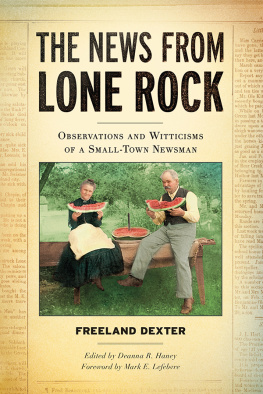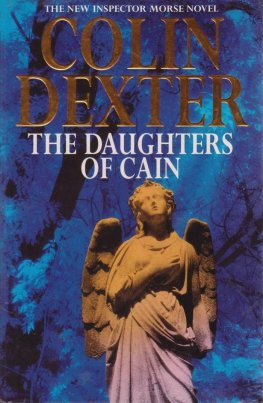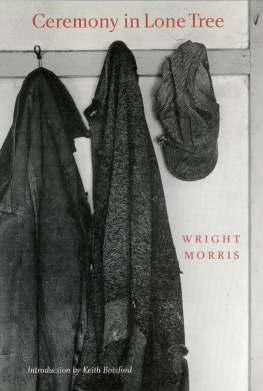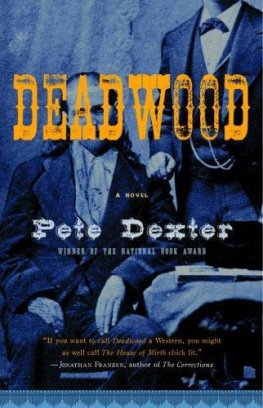THE
NEWS FROM
LONE ROCK
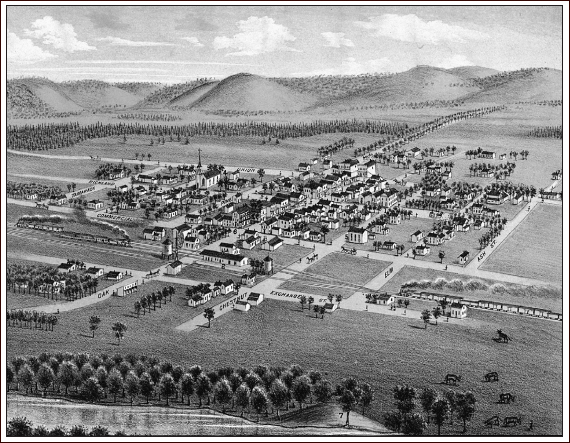
WHI IMAGE ID 12435
THE NEWS FROM
LONE ROCK

OBSERVATIONS
AND WITTICISMS
OF A SMALL-TOWN
NEWSMAN

FREELAND DEXTER
Edited by Deanna R. Haney
Foreword by Mark E. Lefebvre
WISCONSIN HISTORICAL SOCIETY PRESS
Published by the Wisconsin Historical Society Press
Publishers since 1855
The Wisconsin Historical Society helps people connect to the past by collecting, preserving, and sharing stories. Founded in 1846, the Society is one of the nations finest historical institutions.
Order books by phone toll free: (888) 999-1669
Order books online: shop.wisconsinhistory.org
Join the Wisconsin Historical Society: wisconsinhistory.org/membership
2016 by State Historical Society of Wisconsin
E-book edition 2016
For permission to reuse material from The News from Lone Rock (ISBN 978-0-87020-769-3; e-book ISBN 978-0-87020-770-9), please access www.copyright.com or contact the Copyright Clearance Center, Inc. (CCC), 222 Rosewood Drive, Danvers, MA 01923, 9787508400. CCC is a not-for-profit organization that provides licenses and registration for a variety of users.
Publication of this book was made possible in part by a gift from the Lone Rock Historical Society.
Photographs identified with WHi or WHS are from the Societys collections; address requests to reproduce these photos to the Visual Materials Archivist at the Wisconsin Historical Society, 816 State Street, Madison, WI 53706.
Unless otherwise noted, all photographs are courtesy of The Dexter Haney Collection.
Copyright 2016.
20 19 18 17 16 1 2 3 4 5
Library of Congress Cataloging-in-Publication Data
Names: Dexter, Freeland, author. | Haney, Deanna R., editor.
Title: The news from Lone Rock : observations and one-liners of a small-town pundit / Freeland Dexter ; edited by Deanna R. Haney ; foreword by Mark E. Lefebvre.
Description: Madison, WI : Wisconsin Historical Society Press, [2016] | Description based on print version record and CIP data provided by publisher; resource not viewed.
Identifiers: LCCN 2016019878 (print) | LCCN 2016003029 (ebook) | ISBN 9780870207709 (Ebook) | ISBN 9780870207693 (paperback : alkaline paper) | ISBN 9780870207709 (ebook)
Subjects: LCSH: Lone Rock (Wis.)History19th centurySources. | Lone Rock (Wis.)History20th centurySources. | Lone Rock (Wis.)Social life and customsSources. | Social changeWisconsinLone RockHistorySources. | Lone Rock (Wis.)Biography. | Dexter, Freeland. | JournalistsWisconsinLone RockBiography.
Classification: LCC F589.L665 (print) | LCC F589.L665 D48 2016 (ebook) | DDC 977.5/75dc23
LC record available at https://lccn.loc.gov/2016019878
CONTENTS
In an emerging America, the role of newspaperman was an important one. He was an observer, a reporter, an interpreter, and often the heart and soul of the community. He gave voice to broken hearts when a child died and punctured the pomposity of local politicians when they lost perspective. In Lone Rock, Wisconsin, in the late 1800s to early 1900s, that voice was Freeland Dexters. As a small-town newspaperman, Freeland spoke for his village, and he spoke for himself. Anything was fair game. He did not spare words, telling it all. He was that most prized of all things in Wisconsinhe was authentic.
Freeland Dexter was a distinguished Civil War veteran, serving as a member of the Fifth Wisconsin Volunteer Infantry Regiment from 1864 to 1865. At the time of his death in 1912, one of his friends, C. F. Barnes, who fought beside him at the Siege of Petersburg, remembered him as a brave soldier... a true comrade who exhorted a fatigued regiment to engage battle. Freeland had seen the worst in life, but as his columns show, he chose to celebrate the best. He possessed the sympathy that arises from seeing real suffering, but understood the surviving grace of humor. He had a sense of wonder at the pageant of life as it played out in his small town of Lone Rock, Wisconsin.
In the years that Freeland was writing, 1884 to 1912, Mark Twain was on the national and international stage. Just as Twain had his life on the Mississippi River, Freeland had his life on the Wisconsin River. Like Twain, Freeland cherished the whimsical, and he came to the truth in roundabout ways.
In the years that Freeland was writing his columns, Wisconsin had its own share of larger-than-life characters. Bob La Follette was an outspoken political voice, and Charles Van Hise was leading the University of Wisconsin. In 1904, these two men articulated and championed The Wisconsin Idea, embodying the belief that great ideas should exist without boundaries, emerging naturally at the grassroots. These leaders recognized the strength of Wisconsin at the local level. Just down the road in Lone Rock, Freeland Dexter showcased this idea of home-grown strength year-in and year-out.
The study of small town life serves as a way to understand the larger mysteries of life, a way to appreciate what matters most; it is as rich as Sherwood Andersons Winesburg, Ohio, and as August Derleths Prairie du Sac. Here, in Lone Rock, Wisconsin, Freeland Dexter captured the comings and goings of everyday folks and we have a lot we can learn from them. We owe Deanna Haney a great debt of gratitude for bringing this amazing original source material to light. This is as close as we can get to these people and their stories. Enjoy them.
Mark E. Lefebvre
Chances are you have never heard the name Freeland Dexter before picking up this book, but its a good thing Dexter himself wont ever know that. He fancied himself an influential newspaperman, relentlessly reporting the important goings-on of one of the great up-and-coming towns to greet the turn of the twentieth century. After reading his writings, see if you dont come around to his way of thinking.
As a correspondent for the Weekly Home News of Spring Green, Wisconsin, Dexter reported the news from Lone Rock from 1884 to 1912. His weekly columns told the story of his lively hometown and its nearly 1,000 residentsall of whom seemed to have been well-known to Dexter. He celebrated their advancements and joys, commiserated with their sorrows, pontificated on their concerns, and teased them affectionately for their various mishaps. Always quick with a one-liner or a sharp opinion, he was sometimes witty, sometimes caustic, but always respected.
In addition to being an accomplished small-town journalist, Dexter was also my great grandfather, as the father of my paternal grandmother, Bessie Dexter Haney. I came across his columns while researching our family history, but it quickly became apparent to me how much Freeland Dexters writings would appeal to a wider audience. While very specific to Lone Rock, the stories also felt more universal. They provide a powerful glimpse into small-town life in the 1800s and early 1900s. I couldnt possibly include all the items that he wrote, about the town, the people, and their day-to-day lives, but through the sampling in this book I hope you will come to know and love the people of Lone Rock as I have. Through Dexters words, I could almost feel what they were thinking, doing, and experiencing. I found myself fascinated by the changes that they faced during this time period, from the introduction of telephones and gas lights to the organization of a fire department or the building of a new school or bridge. And I shared their grief reading about the early deaths of children and young mothers, much less common in our day and age, due to illnesses such as whooping cough, diphtheria, pneumonia, and smallpox, among many others.

